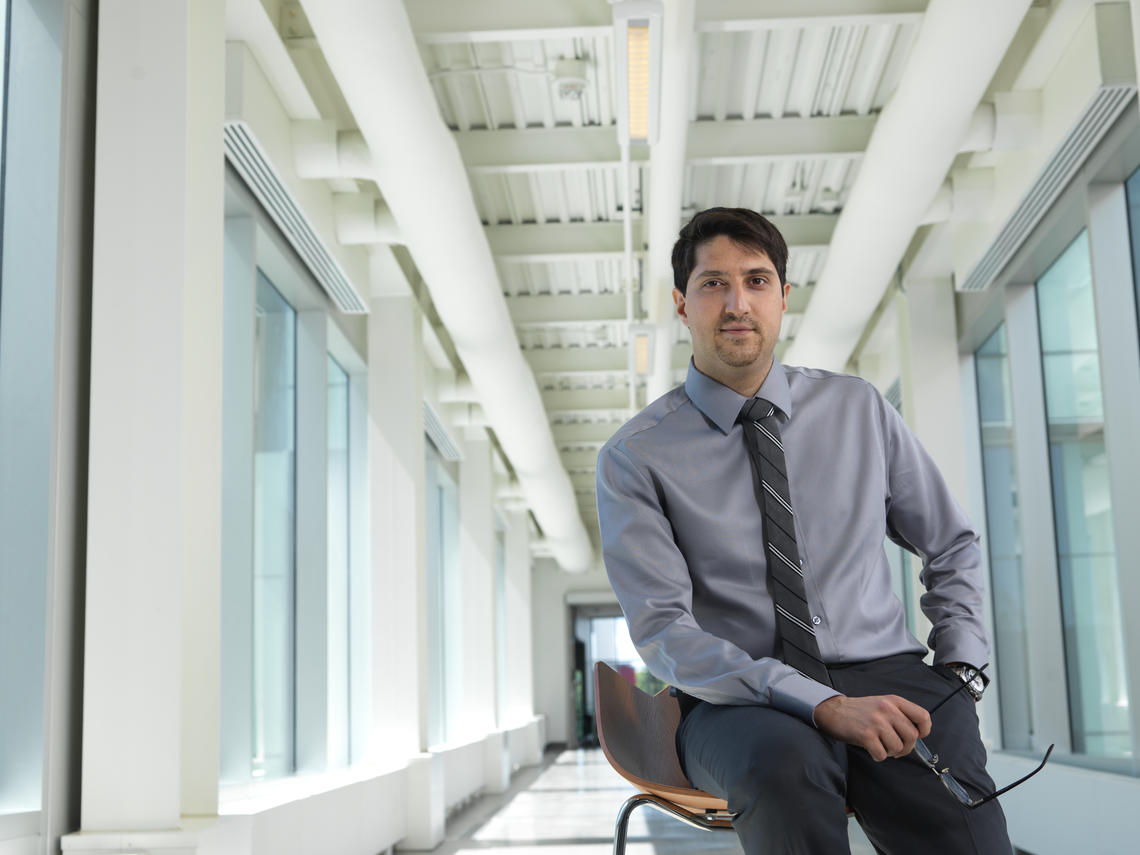March 11, 2020
Digital technologies unlock profits by defying knowledge limitations

Companies are tapping into a new world of profits by using digital technologies to transcend the limitations of their own knowledge, says a researcher.
“They overcome things they know they don’t know — and even things they don’t know they don’t know,” says Dr. Mohammad Keyhani, PhD, an associate professor in the entrepreneurship and strategy areas at the Haskayne School of Business.
He co-authored a recent study in Strategy Science that examined how companies such as Google are using online crowdsourcing and digital marketplaces to make money. Such methods mark a radically different approach from how businesses have typically been successful, he says.
Companies have traditionally used their own employees to develop products and services, creating a body of in-house knowledge they secretively guarded because it gave them an advantage over their competitors, says Keyhani.
Guesswork removed
But companies such as software developers are using online platforms such as TopCoder to build software by crowdsourcing the knowledge of people far outside their firms. “These people come to TopCoder and they see what jobs are posted,” says Keyhani.
“They compete for those tasks, and whoever does the best job basically gets paid. The company commissioning the task doesn’t have to know in advance or figure out who the best person for the job is. This knowledge gets discovered in crowdsourcing.
“You are in a way unburdening some of the knowledge requirements you would need in the traditional business model. You take some of the guesswork off the shoulders of the company or entrepreneur and you distribute it among crowds of people in the broader market.”

Mohammad Keyhani co-authored a study on how companies make money by accessing external knowledge.
Jazhart Studios
Keyhani says crowdsourcing is an example of a “firm-designed market” — a new way of arranging or organizing business activities through digital technologies that is a hybrid of new and traditional approaches, allowing companies to circumvent or defy the constraints of their own knowledge.
Crowdsourcing can result in unexpected solutions that companies would never have been able to even imagine, he says. “You may suddenly see that people you never heard of, with wacky but brilliant ideas that you would never have thought about, can resolve your problem,” he says. “If you hadn’t done it through crowdsourcing, you would never even have known where to look for these people.”
Huge cut of profits
Digital marketplaces such as the Apple App Store and Google Play Store take things one level beyond crowdsourcing by allowing companies to profit from products they had no hand in developing, says Keyhani. “With the crowdsourcing model, you at least have to know what problem you are trying to solve — you have to know what it is you are demanding — but with the marketplace model, you can even leave the demand-side problem to the crowd,” he says.
Keyhani points to the Flappy Bird smartphone game app, which was developed by a Vietnamese student in only a few days in 2013. During the height of its international popularity in 2014, it made as much as $50,000 per day from sales and in-app advertisements.
“Google and Apple profited from Flappy Bird without needing to have the knowledge to predict that an app like this could even be built, how to build it, or whether or not there is demand for it,” says Keyhani. “The marketplace model removes all of these knowledge requirements for Google and Apple, yet they still get a huge cut of the profits through their app stores.”
However, such approaches tend to favour businesses that are the first to scale them, he says. “It is not that easy for every company to employ this sort of model because online platforms involve network effects whereby people only join if other people have joined, resulting in rich-get-richer patterns,” he says referring to near monopolies such as Apple App Store and Google Play Store. “Almost everybody else fails because of this network effect.”
Besides Keyhani, the study was co-authored by Dr. Hamed Tajedin, PhD, an adjunct professor at the Graduate School of Management and Economics at the Sharif University of Technology in Iran; and Dr. Anoop Madhok, PhD, a professor and Scotiabank Chair in International Business and Entrepreneurship at the Schulich School of Business at York University in Toronto.





